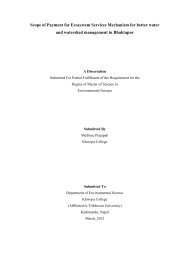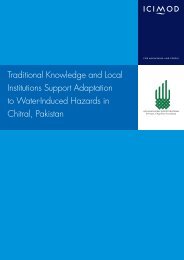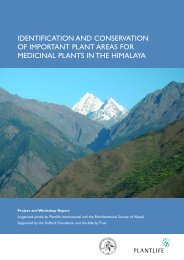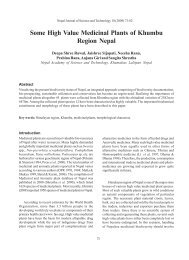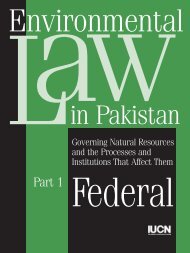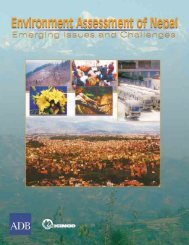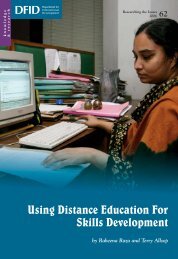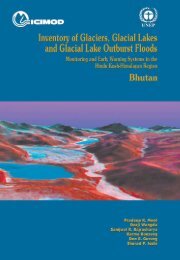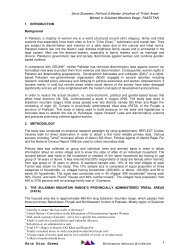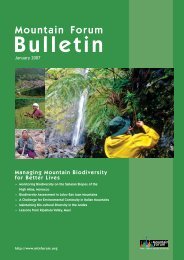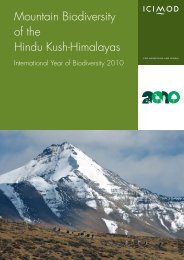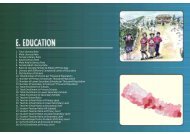Flash Flood Risk Management â A Training of Trainers ... - ReliefWeb
Flash Flood Risk Management â A Training of Trainers ... - ReliefWeb
Flash Flood Risk Management â A Training of Trainers ... - ReliefWeb
Create successful ePaper yourself
Turn your PDF publications into a flip-book with our unique Google optimized e-Paper software.
Day 2<br />
Step 2<br />
Show the short video on local knowledge and flood preparedness in the Eastern Terai <strong>of</strong> Nepal.<br />
Note to the<br />
trainer<br />
About the video<br />
The video shows how the people <strong>of</strong> the Eastern Terai <strong>of</strong><br />
Nepal use local knowledge in flash flood and riverine flood<br />
preparedness. It also shows how these people live surrounded<br />
by numerous different stresses. Practitioners working in the<br />
field <strong>of</strong> flash flood management need to be aware that while<br />
communities exist in a give environmental context that this needs<br />
to be considered against the backdrop <strong>of</strong> their own particular<br />
socio-cultural, economic and political situation. The hazards <strong>of</strong><br />
flash floods need to be seen as one <strong>of</strong> the many natural hazards<br />
and other stresses that the community faces.<br />
Step 3<br />
Distribute Handout 6.1 and ask the participants to write down what they understand by ‘local<br />
knowledge’?<br />
Based on the video presentation and on their own experience, ask the class to write the answer <strong>of</strong><br />
the following questions:<br />
• What areas are covered by the term ‘local knowledge’? How does it cover both environmental<br />
knowledge and social and cultural aspects?<br />
• Where is local knowledge located?<br />
• Who in the community has local knowledge?<br />
• How and when is local knowledge produced, transmitted and/or lost?<br />
Step 4<br />
Step 5<br />
Ask the participants what role they think local knowledge plays in flash flood management.<br />
Clarify the importance <strong>of</strong> local knowledge in disaster management. Specifically mention how local<br />
knowledge can be used in flash flood management.<br />
Activity 6.2: How to identify and document local knowledge related to<br />
disaster management<br />
Time: 15 minutes<br />
Step 1<br />
Step 2<br />
Step 3<br />
Discuss why it is important to document local knowledge.<br />
Discuss the four pillars <strong>of</strong> local knowledge on disaster preparedness.<br />
Discuss the process <strong>of</strong> documenting local knowledge.<br />
Note to the<br />
trainer<br />
Reiterate that local knowledge is context specific and that it is<br />
not easy to generalise it and apply it to other areas. Clarify that<br />
the purpose <strong>of</strong> documenting local knowledge is not to conserve<br />
it, but rather to learn from it in order to create new concepts,<br />
methods, or strategies for improved flash flood and disaster<br />
management. Local knowledge is documented in the hope <strong>of</strong><br />
being able to use indigenous methods to strengthen the coping<br />
mechanisms that communities use to deal with disasters.<br />
session 6<br />
37



